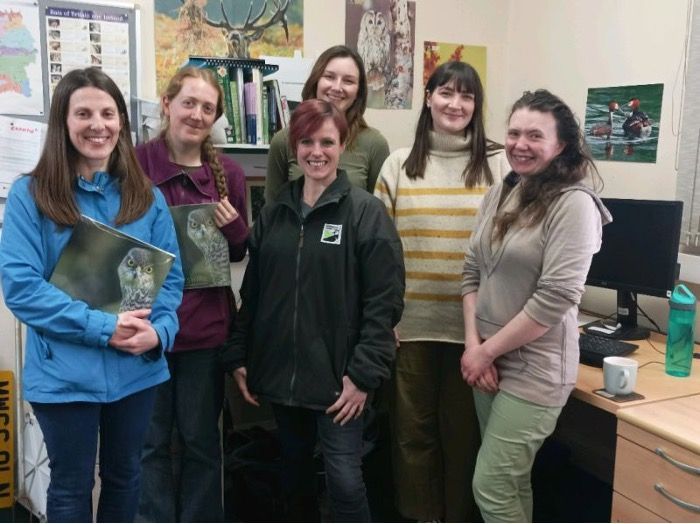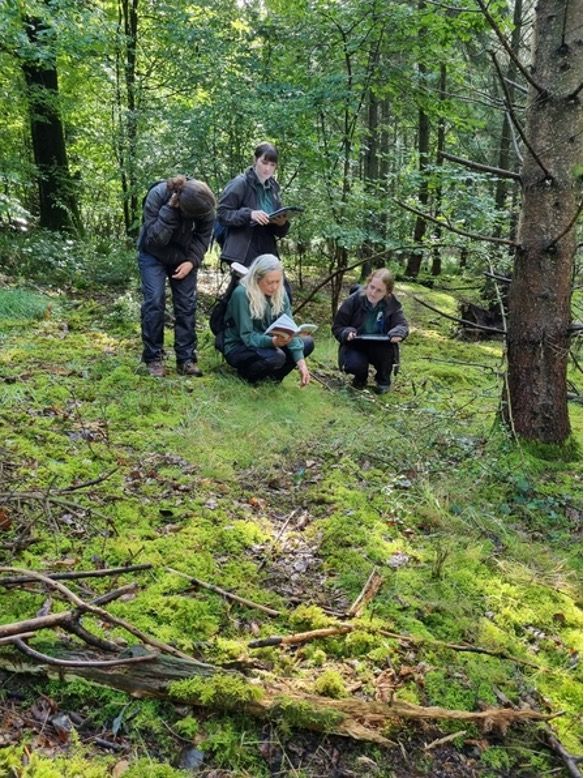
Jane Kinney is Project Ecologist with the Wiltshire Wildlife Trust
The ecological sector is rapidly evolving in response to an ongoing biodiversity and climate crisis, with the introduction of new platforms to support natural capital, green finance and environmental service markets. In addition, Biodiversity Net Gain (BNG) became mandatory from 12th February 2024, with the new ‘UKHabs’ habitat classification system alongside the DEFRA Statutory Biodiversity Metric calculator being adopted to support BNG delivery. This is therefore a vital time to obtain a strong awareness and understanding of the new approaches which will be widely adopted in the coming year and beyond.
‘I feel I have been given an insight into the future of nature recovery and how it can be financed’.
The ecological sector can still pose a challenge to those wanting to seek a career in the field, often requiring a range of practical skills and knowledge, and with high competition for prospective roles. With the creation of the Bristol Avon Catchment Market, and thanks to funding from The Green Recovery Challenge Fund, the project has been able to offer a number of exciting career and training opportunities from the beginning.
Following on from the success of the 2022 traineeship programme, in mid August 2023 the project employed a further two Graduate Trainee Ecologists. These were hosted by Wiltshire Wildlife Trust and, over the course of a 6 month period the trainees were provided with real in-field experience, practical training and essential skills desired by employers in the sector.
‘It has been fantastic to work with others who share my passion for nature and seeing everyone working hard towards shared goals’
The traineeship aimed to provide meaningful and applicable in-field experiences and training, much of which was carried out on a range of BACM sites and nature reserves within the Wiltshire Catchment area.
Trainees completed modules in: Biodiversity Net Gain; Ecological Surveying; Habitat Design, Creation and Management; and Wetland and Natural Flood Management Design. Each module was designed to develop the core relevant knowledge alongside a range of additional skills including Ecological Surveying and legislation; data collection and ‘ground truthing’; UKHabs classification; GIS mapping; and ecological report writing, and included production of a written portfolio.
‘The amount of training and information you cover really is incredible, especially within half a year’
Feedback from the trainees was incredibly positive, with some key words including “rewarding”, “insightful” and “fun”. The trainees felt the portfolio was a tangible tool, evidencing their learning during their time on the traineeship, providing a professional example of their gained knowledge and skills to present to future employers. They felt that the traineeship had made them more employable and they had gained the skills and confidence to progress in their careers in the sector.
‘We were involved in a wide range of activities and had exposure to issues facing the sector which gives me confidence talking about, and working in, nature recovery.’
Upon completion of the traineeship, one trainee has secured a full time Project Officer role at Ecosulis, whilst the other is pursuing a ranger role and working towards obtaining their dormouse licence. This builds upon the success of the previous traineeship which resulted in all six trainees securing work as Assistant Ecologists immediately following the placement. Traineeships clearly continue to offer a supportive and purposeful way to develop graduates for future employment within the environmental sector.
‘Every member of staff was so welcoming, supportive and keen to aid our learning. I felt like my opinion was valued’
With thanks to the Green Recovery Challenge Fund, administered by National Lottery Heritage Fund for proving seed funding to the Bristol Avon Catchment Market, and enabling the development and provision of both rounds of trainees.



